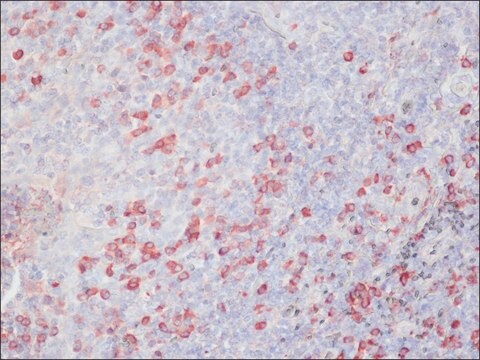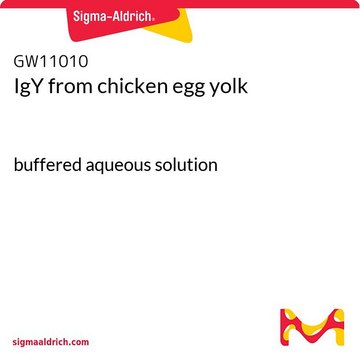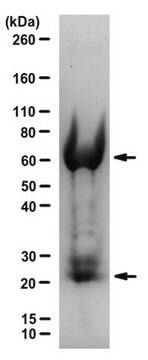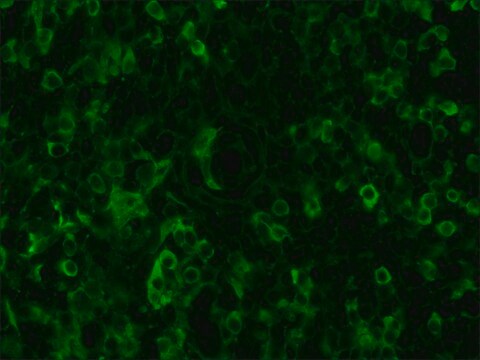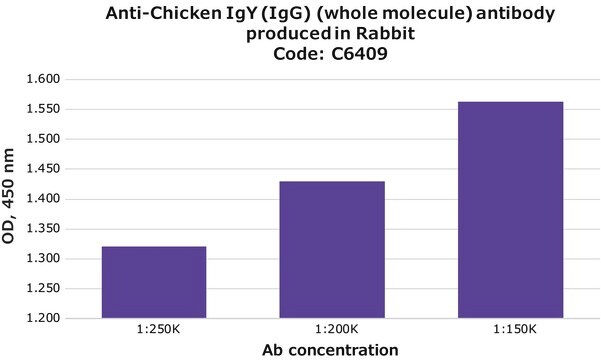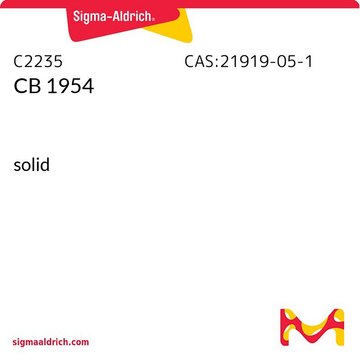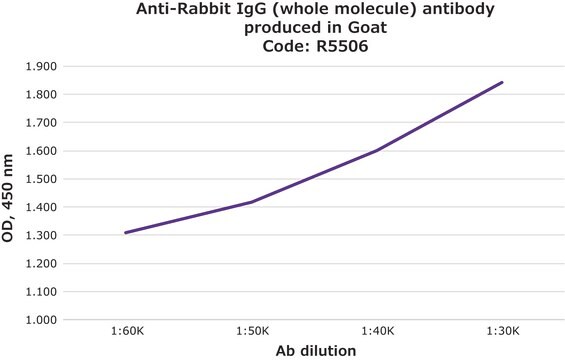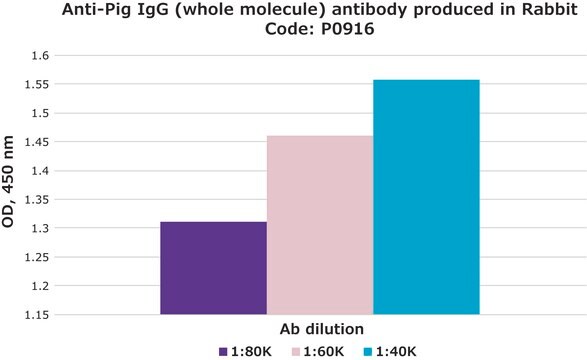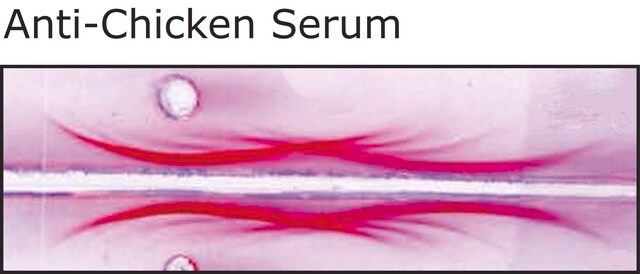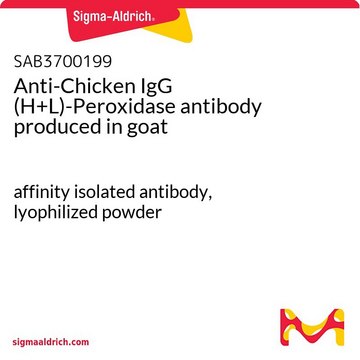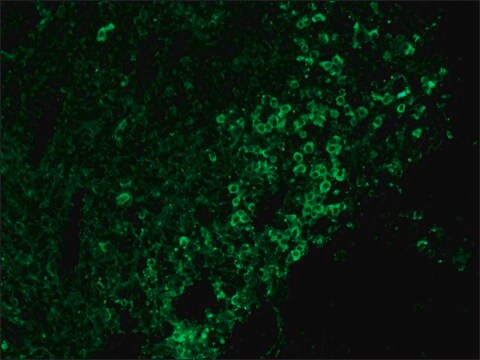C2288
Anti-Chicken IgY (IgG) (whole molecule) antibody produced in rabbit
affinity isolated antibody, buffered aqueous solution
Synonym(s):
Rabbit Anti-Chicken IgY (IgG) (whole molecule)
Sign Into View Organizational & Contract Pricing
All Photos(1)
About This Item
Recommended Products
biological source
rabbit
Quality Level
conjugate
unconjugated
antibody form
affinity isolated antibody
antibody product type
secondary antibodies
clone
polyclonal
form
buffered aqueous solution
species reactivity
chicken
technique(s)
indirect ELISA: 1:25,000
shipped in
dry ice
storage temp.
−20°C
target post-translational modification
unmodified
Looking for similar products? Visit Product Comparison Guide
General description
The product binds to chicken IgY (IgG).
Application
Anti-Chicken IgY (IgG) (whole molecule) antibody produced in rabbit has been used in enzyme linked immuno sorbent assay (ELISA).
Biochem/physiol Actions
IgY antibody subtype is the most abundant of serum immunoglobulins of the immune system in birds and is analogous to IgG found in mammals. It is secreted by B cells and is found in blood and extracellular fluids and provides protection from infections caused by bacteria, fungi and viruses.
Physical form
Solution in 0.01 M phosphate buffered saline, pH 7.4, containing 15 mM sodium azide.
Storage and Stability
For continuous use, store at 2-8 °C for up to one month. For extended storage, the solution may be frozen in working aliquots. Repeated freezing and thawing is not recommended. Storage in "frost-free" freezers not recommended. If slight turbidity occurs upon prolonged storage, clarify the solution by centrifugation before use.
Disclaimer
Unless otherwise stated in our catalog or other company documentation accompanying the product(s), our products are intended for research use only and are not to be used for any other purpose, which includes but is not limited to, unauthorized commercial uses, in vitro diagnostic uses, ex vivo or in vivo therapeutic uses or any type of consumption or application to humans or animals.
Not finding the right product?
Try our Product Selector Tool.
Storage Class Code
10 - Combustible liquids
WGK
nwg
Flash Point(F)
Not applicable
Flash Point(C)
Not applicable
Choose from one of the most recent versions:
Already Own This Product?
Find documentation for the products that you have recently purchased in the Document Library.
Customers Also Viewed
Jenn-Fa Liou et al.
Vaccine, 28(51), 8189-8196 (2010-10-13)
The objective of this study is to evaluate the passive protective efficiency of immunoglobulin in yolk (IgY) specific against human enterovirus type 71 (EV71). The antibody was raised by intramuscular immunization to 10 White Leghorn hens, with inactivated human EV71
Franck Court et al.
Genome research, 29(10), 1605-1621 (2019-09-20)
In cancer cells, aberrant DNA methylation is commonly associated with transcriptional alterations, including silencing of tumor suppressor genes. However, multiple epigenetic mechanisms, including polycomb repressive marks, contribute to gene deregulation in cancer. To dissect the relative contribution of DNA methylation-dependent
Ying-Chun Dai et al.
Journal of virological methods, 186(1-2), 126-131 (2012-08-08)
Noroviruses (NoVs) are a leading cause of epidemic acute gastroenteritis affecting millions of people worldwide. Understanding of NoV remains limited due to the lack of a cell culture system and small animal models. Currently, there are no effective vaccines or
Vincenzo Di Cerbo et al.
eLife, 3, e01632-e01632 (2014-03-29)
Post-translational modifications of proteins have emerged as a major mechanism for regulating gene expression. However, our understanding of how histone modifications directly affect chromatin function remains limited. In this study, we investigate acetylation of histone H3 at lysine 64 (H3K64ac)
Chickens with humanized immunoglobulin genes generate antibodies with high affinity and broad epitope coverage to conserved targets
Ching KH, et al.
MAbs, 10(1), 71-80 (2018)
Our team of scientists has experience in all areas of research including Life Science, Material Science, Chemical Synthesis, Chromatography, Analytical and many others.
Contact Technical Service